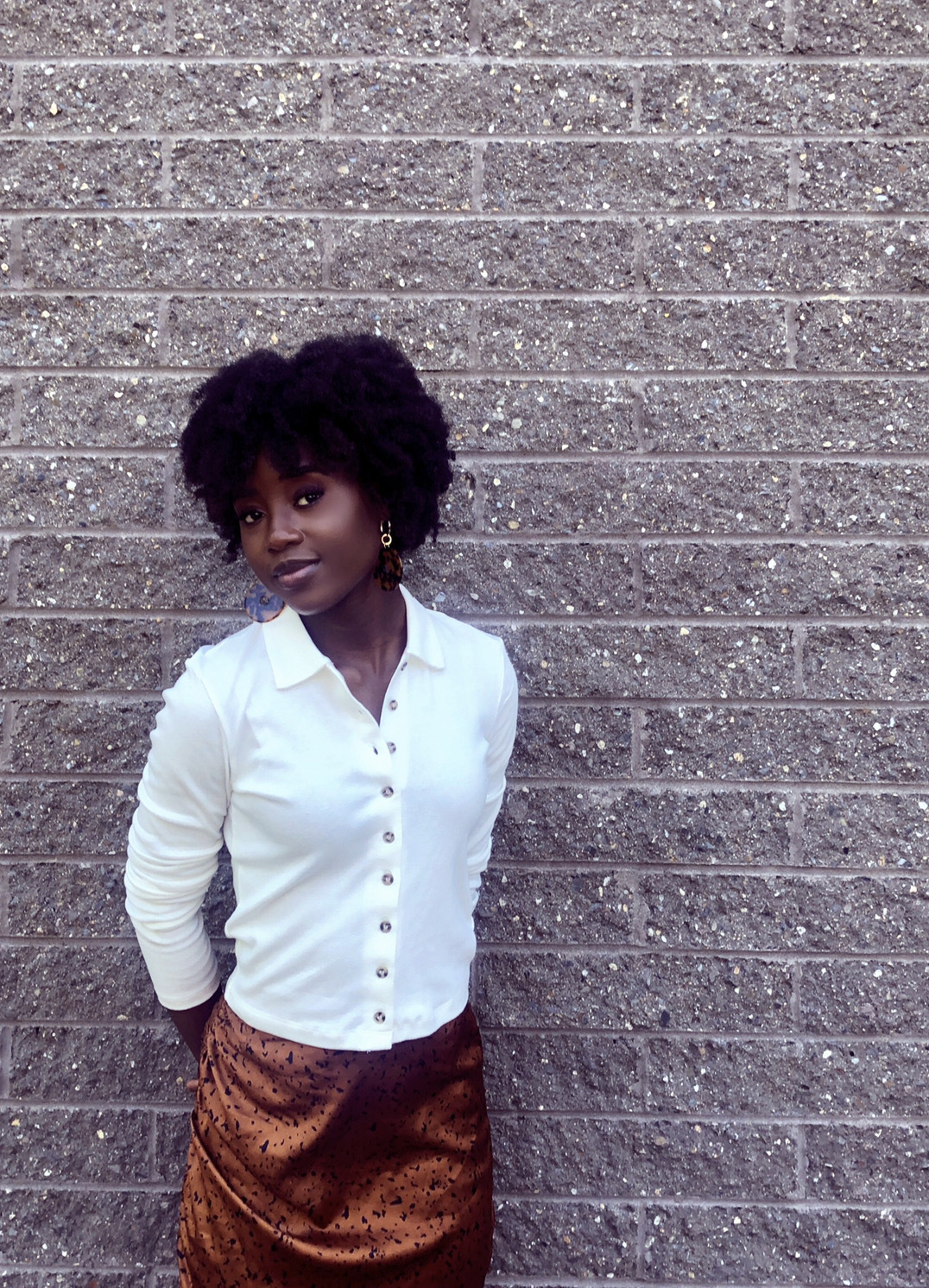This month, post doc Leonora Martinez-Nunez sat down with Brenda Thomas, Post-bacc and lab technician in the Munson Lab. Read Brenda’s story below.
I am currently a post-bacc  and lab technician in the Munson lab. I am originally from Liberia, a small country on the west coast of Africa. I had attended an all-girls school, participated in radio talk shows, spelling bees, and played sports during my spare time. After moving to the United States, I had lots of opportunities to advance my career in science. My interests outside of science include praise and worship, reading, journaling, and spending time with friends and family. I am also a sucker for any kind of sports even when I don't understand some of them, like football.
and lab technician in the Munson lab. I am originally from Liberia, a small country on the west coast of Africa. I had attended an all-girls school, participated in radio talk shows, spelling bees, and played sports during my spare time. After moving to the United States, I had lots of opportunities to advance my career in science. My interests outside of science include praise and worship, reading, journaling, and spending time with friends and family. I am also a sucker for any kind of sports even when I don't understand some of them, like football.
What set you on this trajectory of becoming a scientist?
I was initially introduced to the idea of being a scientist or exploring research by my 8th grade Science teacher back home in Liberia. He taught a class about the Periodic Table of Elements passionately and it became an interest of mine. This led me to memorize the symbols of the elements after school. For something seen as just another table, personally it signified that everyone and everything around me are somewhat composed of those elements. The enlightenment I experienced was one of the factors that led me on the path of following the footsteps of those who combine knowledge of science with medical treatment, such as physicians and physician-scientists.
What is your current research focus?
I'm currently training in the Munson Lab and gaining lab experience, as well as learning more about the research process. I’m involved in a project with the goal of understanding the role of phosphorylation as a regulatory mechanism in membrane fusion and exocytosis.
What led you to this field?
When I took my first biochemistry course during my undergraduate time, my enthusiasm for science grew even more. This course introduced me to major metabolic pathways in various organisms' lives. I was therefore inspired by the essence of biochemical interactions in cells and wanted to explore this area of interest more in terms of research.
Why did you choose this lab/department at UMass Chan?
Before I was hired here, I was familiar with the UMass Chan community due to my summer undergrad research experience here a year before. I felt welcomed and wanted a similar feeling when it was time to move forward with post-grad plans. I looked for labs that would not only prioritize the science but also the lab values and culture. My lab embodies these desires and even more and I couldn’t be more grateful.
What’s the coolest thing about your research and that you enjoy the most?
I think the study of phosphorylation as a regulatory mechanism for exocytosis is really interesting. I’m looking forward to understanding more about it and contributing this way to the field.
What are some of the lessons you learned along the way that you would like to share with trainees who recently joined the BMP department?
Be attentive and patient. I say that because regardless of your level of experience this is still a new environment, and it will take time to adjust to the system in the lab/department. Be patient with yourself because the process is a learning curve so trust the process. Also, be attentive in terms of the lab notebook and protocols/ experiments so that in the event when you make a mistake you can reflect on what to do and not to do next time.
Any advice you wished you had gotten when you first started as a scientist?
Prioritize your lab notebook and all your notes on the experiments. Since I’m learning my way through research this is something that has helped me a lot in troubleshooting and understanding why we do certain things during experiments.
What role do you think scientists play in helping to solve some of the current issues we face as a society?
Scientists are crucial to solve the medical issues that we face as a society. More importantly, all the knowledge that we have acquired through scientific research is invaluable.
Where do you see yourself in 5 years and how can this department help you get there?
I want to go to medical school and combine it with scientific research. My main goal is to help people through science, but I also want to be able to have a connection with the patients, not just from a lab bench. Eventually I want to help people back home in Liberia solving some of the issues the country is facing in terms of medical care and scientific knowledge. I think the lab and this department can help me in sharpening my critical thinking, to question the things I know and to solve problems.
One thing you would say to your younger self.
I would say trust God and trust the process, everything will work out just right!